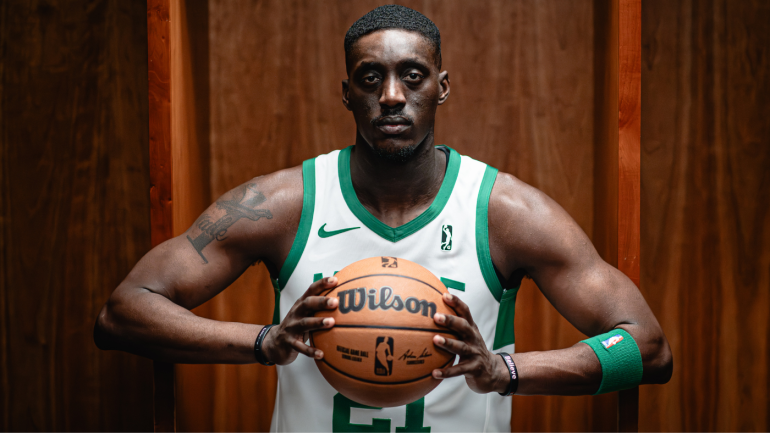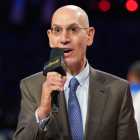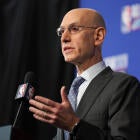Tony Snell fails to sign with an NBA team before Feb. 2 deadline to gain year of service, retirement benefits
Snell's story of wanting to get lifetime health insurance for his sons has gone viral in recent days

The buildup to the NBA's trade deadline period is typically dominated by questions about the futures of superstars that are possibly on the move, but over the past week, one of the biggest stories in basketball has revolved around a role player that isn't even in the league at the moment.
On Wednesday, Yahoo's Jake Fischer wrote a story profiling former NBA wing Tony Snell. The former journeyman has, to this point, accrued nine years of service in the NBA thus far. Players who reach 10 receive premium retirement benefits under the collective bargaining agreement. Those benefits include lifetime health insurance for his children. Both of Snell's sons, Karter (3) and Kenzo (2) have been diagnosed with autism spectrum disorder. Snell himself has also been diagnosed as being on the autism spectrum.
The NBA's retirement benefits exist in two tiers. Players with three years of experience get lifetime health insurance for themselves, but premium benefits, which require 10 years of service, cover entire families. Snell has spent this season playing for the G-League's Maine Red Claws hoping to attract the attention of an NBA team, as he needed to be signed to a contract for the remainder of the season by Friday, Feb. 2 in order to qualify for that 10th year of service. In 14 G-League appearances, he has averaged 4.1 points in 13.3 minutes per game. The Red Claws, like most G-League teams, prioritize giving minutes to younger players, and with rookies Jordan Walsh and Drew Peterson playing on the wing, opportunities have been sparse. Sadly, Friday's deadline came and went without Snell being signed to an NBA team.
Still, his story has raised quite a bit of awareness not only about autism, but how the league's retirement benefits work. On Thursday, TNT's Charles Barkley made an impassioned plea for a team to sign Snell for the remainder of the season.
Charles Barkley spoke on Tony Snell hoping to sign with an NBA team by Friday to qualify for the players association's retiree benefits program
— Bleacher Report (@BleacherReport) February 2, 2024
Snell hopes to qualify for his two kids who have been diagnosed with autism spectrum disorder pic.twitter.com/5xLXYFjT1X
Snell could still potentially catch on with a team next season, but the longer he's out of the league, the longer the odds of him doing so become. For now, his chances of eventually getting that 10th year of service aren't looking great. Perhaps his story eventually compels the league and player's association to reconsider its eligibility criteria for these benefits down the line, or at least create some form of exception for players under similar circumstances. If nothing else, Snell has raised quite a bit of awareness about the costs associated with autism. If his story helps anyone get the care they need, that's a pretty valuable silver lining.


















